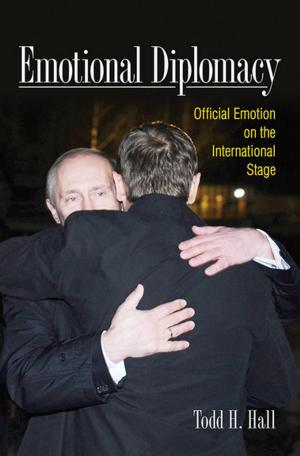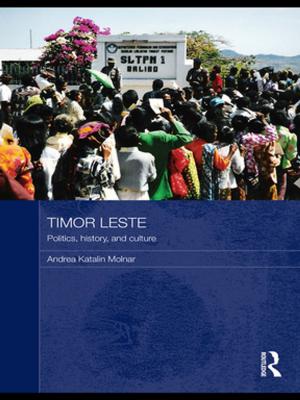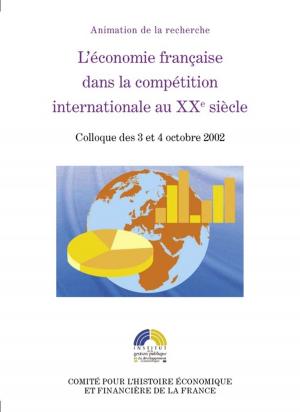| Author: | Kasadha | ISBN: | 9781533766137 |
| Publisher: | Kasadha | Publication: | April 26, 2016 |
| Imprint: | Language: | English |
| Author: | Kasadha |
| ISBN: | 9781533766137 |
| Publisher: | Kasadha |
| Publication: | April 26, 2016 |
| Imprint: | |
| Language: | English |
Emilio Mwai Kibaki has featured in Kenya’s political times dating back to the pre-independence days, with a strong economic and political career he will live to be adored, imitated, criticized and related. Having been in parliament from the first post independence government until the end of his presidency his seat was special in the English designed debate bench, and in all this times he served diligently the people of Kenya politically and economically without privileged stains. His unique character outlived beyond the tales of corruption, fraud, tribalism and petty politics because of his economics school of thought and reason. To Kibaki, in every debate locally or internationally Kenya came first. He stood out smart, unpredictable and outmaneuvered both his friends and fowls to become one of the most honoured economists in Africa and conclusively the third President of the republic of Kenya.
Kibaki’s nature though individualistic is always determined and he luckily seldom shrinks from obstacles. Kibaki often just needed to show more flexibility and diplomacy. Moreover, life's pitfalls often stimulated him, Kibaki was acknowledged for his decisiveness which commanded admiration as others thought it was a weakness, for him it was the best political tool at his disposal. Kibaki followed his ideas through, discarding external opinions and viewpoints and he confidently brought enterprises to a successful conclusion, even if it meant that he had to do it alone.
Kibaki’s decisions were so inflexible and his choices, so final, that anyone’s intransigence may have brought a few setbacks. Therefore, it was important for him to develop the tolerance that he was naturally lacking. It was only at this price that he could achieve a harmonious social and intimate political life. Kibaki’s prevailing features were his persuasion powers, he had faith that moved many mountains and overcame the most resistant obstacles.
Kibaki’s sensitivity was devoid of infatuation or carelessness, he belonged to the cerebral type due to his needs for inner security and freedom, perhaps that was the reason he choose to resign and join opposition politics. Kibaki considered feelings and emotions as burdens and therefore he was apparently phlegmatic and almost detached emotionally. However, his swift reactivity and fertile imagination made him appreciate friendly gatherings with numerous and varied exchanges. Kibaki never wore his heart on his sleeve. At first, Kibaki seemed cold but those who knew him were aware of his very original and unique sense of humour. His receptiveness was remarkable. Kibaki was observant and all his detachment work wonders in the defence of his anti-conformist and rebellious ideas. Kibaki’s stubbornness was obvious and it was very difficult to make him change his mind because he was affectively too vulnerable; it would require lengthy and thorough argumentations aiming at his intellect which most people didn’t have to positively challenge him.
Emilio Mwai Kibaki has featured in Kenya’s political times dating back to the pre-independence days, with a strong economic and political career he will live to be adored, imitated, criticized and related. Having been in parliament from the first post independence government until the end of his presidency his seat was special in the English designed debate bench, and in all this times he served diligently the people of Kenya politically and economically without privileged stains. His unique character outlived beyond the tales of corruption, fraud, tribalism and petty politics because of his economics school of thought and reason. To Kibaki, in every debate locally or internationally Kenya came first. He stood out smart, unpredictable and outmaneuvered both his friends and fowls to become one of the most honoured economists in Africa and conclusively the third President of the republic of Kenya.
Kibaki’s nature though individualistic is always determined and he luckily seldom shrinks from obstacles. Kibaki often just needed to show more flexibility and diplomacy. Moreover, life's pitfalls often stimulated him, Kibaki was acknowledged for his decisiveness which commanded admiration as others thought it was a weakness, for him it was the best political tool at his disposal. Kibaki followed his ideas through, discarding external opinions and viewpoints and he confidently brought enterprises to a successful conclusion, even if it meant that he had to do it alone.
Kibaki’s decisions were so inflexible and his choices, so final, that anyone’s intransigence may have brought a few setbacks. Therefore, it was important for him to develop the tolerance that he was naturally lacking. It was only at this price that he could achieve a harmonious social and intimate political life. Kibaki’s prevailing features were his persuasion powers, he had faith that moved many mountains and overcame the most resistant obstacles.
Kibaki’s sensitivity was devoid of infatuation or carelessness, he belonged to the cerebral type due to his needs for inner security and freedom, perhaps that was the reason he choose to resign and join opposition politics. Kibaki considered feelings and emotions as burdens and therefore he was apparently phlegmatic and almost detached emotionally. However, his swift reactivity and fertile imagination made him appreciate friendly gatherings with numerous and varied exchanges. Kibaki never wore his heart on his sleeve. At first, Kibaki seemed cold but those who knew him were aware of his very original and unique sense of humour. His receptiveness was remarkable. Kibaki was observant and all his detachment work wonders in the defence of his anti-conformist and rebellious ideas. Kibaki’s stubbornness was obvious and it was very difficult to make him change his mind because he was affectively too vulnerable; it would require lengthy and thorough argumentations aiming at his intellect which most people didn’t have to positively challenge him.















